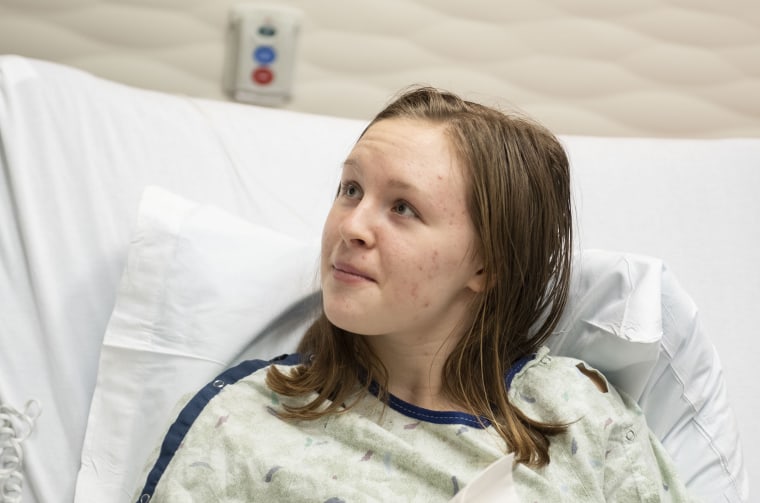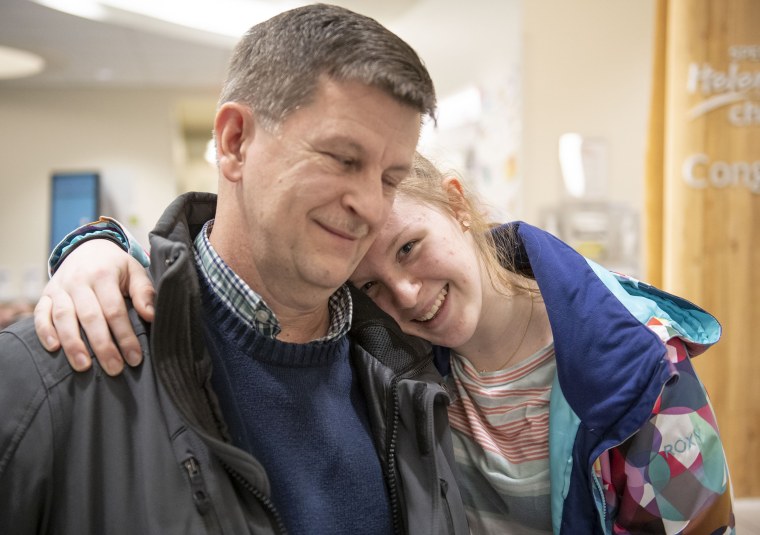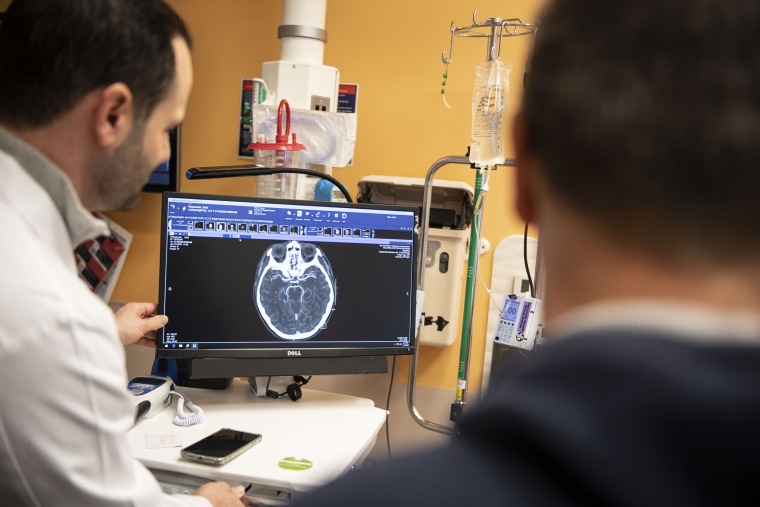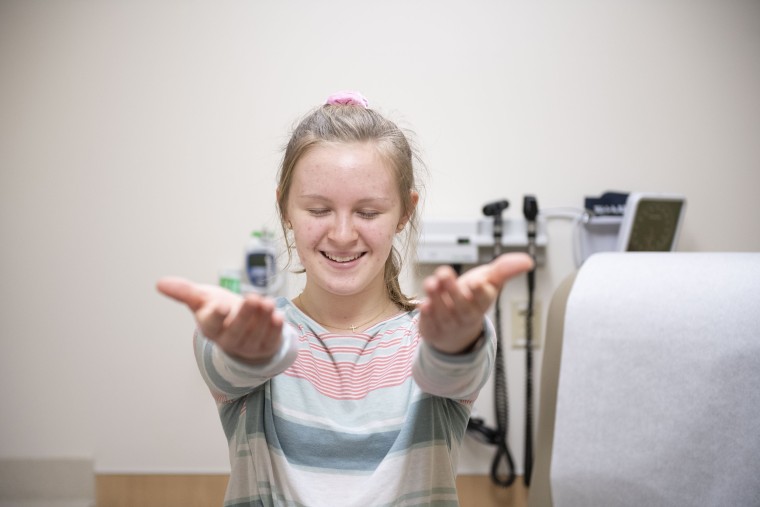Since 14-year-old Zosia Wasylewski experienced a stroke in January, she and her family have been raising awareness about warning signs of stroke for people of any age.
“The surgeon said the ‘FAST acronym,’” mom Anna Wasylewski, who lives in Boyne Falls, Michigan, told TODAY. “If someone has the symptoms, call 911. You can save someone’s life.”
FAST stands for:
- Facial drooping
- Arm weakness
- Speech that’s slurred
- Time: Quick action leads to better results

“Zosia’s case is pretty interesting … she jokingly was saying she thought she was having a stroke at the time but something goofy enough was going to raise suspicions,” Dr. Justin Singer, director of vascular neurosurgery at Spectrum Health in Grand Rapids, Michigan, told TODAY. “The fact they called 911 and got her to a hospital quickly … really made all the difference.”
Watch TODAY All Day! Get the best news, information and inspiration from TODAY, all day long.
Collapsing in math class
Zosia was sitting on the floor in geometry class with some friends playing a game. Suddenly, she slumped over, collapsing into her friend. At first they laughed it off, but when it was time to return to their seats, Zosia couldn’t get up: Her left arm and leg wouldn’t move.
“I started getting a little concerned,” she told TODAY. “When I couldn’t stand up, people had to try to help me and then I fell back down as they got me into my seat. They were all looking at me and I said I felt like I was having a stroke.”
The teacher asked if Zosia wanted her to call the office and she said yes. While she joked that she was having a stroke, the teenager didn’t realize she actually was. She had no idea what was happening. When she couldn’t walk to the office, some classmates picked up her chair and carried her down as an ambulance came for her.
“My daughter is crying and scared. She couldn’t move anything or lift up her arm,” her dad, Frank Wasylewski, told TODAY. “She’s like, ‘Well, I’m having a stroke’ and I’m like, ‘No, no, no.’”

Pediatric stroke is rare: Singer noted that roughly 25 out of 100,000 kids under the age of 18 experience stroke annually where nearly 800,000 adults experience a stroke every year, according to the Centers for Disease Control and Prevention.
"It is a pretty uncommon problem," Singer said. "Pediatric stroke ends up being a missed opportunity when children come in too late for treatment."
When she arrived at the local hospital, a CT scan of her brain revealed that Zosia right: She had a stroke caused by blocked artery. The local hospital in northern Michigan thought it was best to transfer her to Helen DeVos Children’s Hospital in Grand Rapids, a nearly 180-mile trip by ambulance. During the trip, she began moving her left arm and leg again and she thought she had improved.
“Two hours after her original incident at school she started talking, walking and moving. She did complain about a headache but not for very long,” her mom explained.
Minimally invasive treatments helps life return to normal
When Singer reviewed her CT scans, the doctor knew he needed to remove the blood clot in her cerebral artery using a minimally invasive procedure called mechanical thrombectomy
“She had a blocked artery on the right side of her brain,” Singer said. “If she hadn’t gotten to the doctor on time she would have gone on to a complete stroke on that side of her brain.”
That could have led to numbness, paralysis or even a permanent inability to walk, he added. But successfully removing the clot would give Zosia the chance to return to the active life she enjoyed, which includes basketball, volleyball, skiing, swimming and running.
“The sooner people are able to seek medical attention, the sooner we're able to offer them this procedure, giving the best possible outcome,” Singer said. “We have the ability to reduce disability and give patients the opportunity for a functionally independent life.”

While Singer performed hundreds of these a year, this was the first time he performed a mechanical thrombectomy on a teen. Though, Zosia fared well even though she was overwhelmed.
“I kind of just felt numb. I was like ‘OK I am alive,’” she said. “I stayed in the hospital for four days so that was a bummer to miss school. But every day I felt better.”
Doctors had discovered that the blood clot reached her brain through a hole in her heart, which her parents were unaware of. Unborn babies have these holes, which close in most children in infancy. But not in Zosia's case. To avoid another stroke, doctors also had to repair the hole, which they did in February. Again, she thrived.
“They told me three days later I could do what I wanted,” she said.
That meant she hit the ski slopes as soon as she could — as well as playing basketball and volleyball again.
“It is basically life as normal. Blood thinners and baby aspirin for the rest of my life,” she said. “No restrictions. I love that. I need my running.”
Zosia is sharing her story to help others.
“I didn’t expect a stroke to happen to me,” she said. “You can’t really predict that it can happen, but you can recover from it.”

Her dad stressed that quick action turned a scary situation into a manageable one.
“React to your body if something is going wrong,” he said. “In her case everyone did the right thing … It was a very good thing.”

